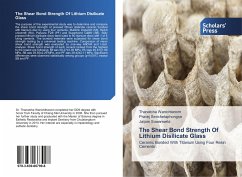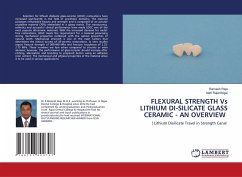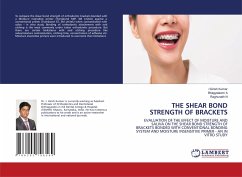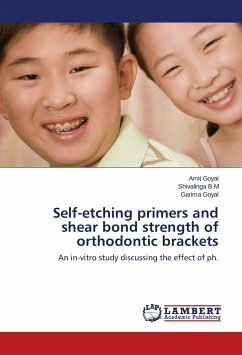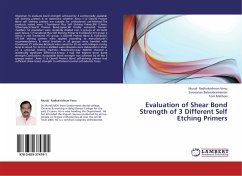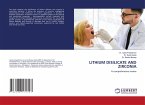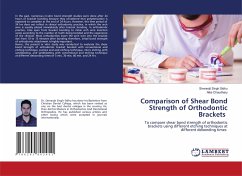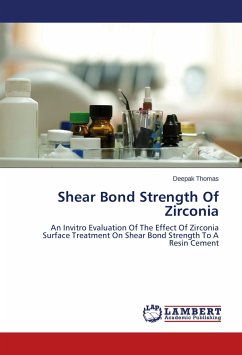The purpose of this experimental study was to determine and compare the shear bond strength of pressed lithium disilicate ceramic bonded with titanium disc by using four cements; Multilink implant® (MI), RelyX unicem® (RU), Panavia F2® (PF) and Superbond C&B® (SB). Sixty pressed lithium disilicate discs were luted to 60 titanium discs with 1 of 4 luting cements. The bonded materials were subjected for shear bond strength testing by a universal testing machine. Comparison of mean shear bond strength was evaluated by one-way ANOVA and t-test analysis. Shear bond strength of each cement ranked from the highest to the lowest are following; MI was 58.27±2.05 MPa, RU was 45.81±1.88 MPa, SB was 39.55±2.29 MPa, and PF was 39.42±2.11 MPa. Significant differences were observed statistically among groups (p0.001), except SB and PF.
Bitte wählen Sie Ihr Anliegen aus.
Rechnungen
Retourenschein anfordern
Bestellstatus
Storno

